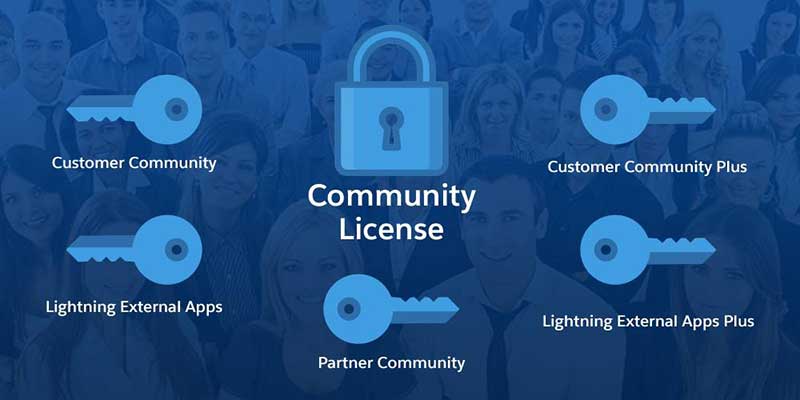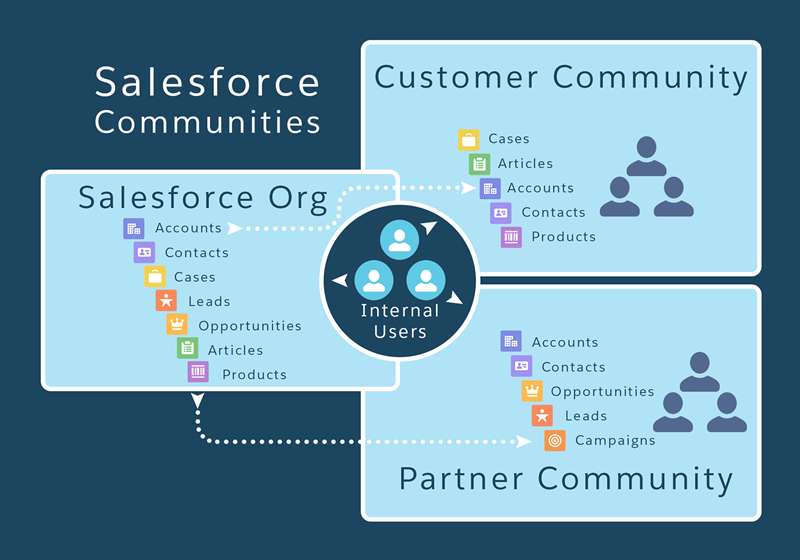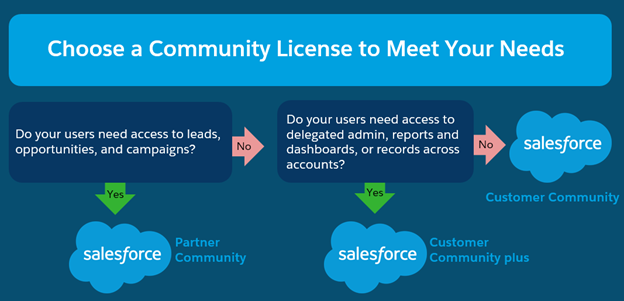
What are the different types of Community Licenses?
minutes read
What is a Salesforce community? Salesforce defines Communities as branded spaces for your representatives, clients and accomplices to interface. While this is valid, that definition does not completely incorporate everything that Communities can do, particularly for your nonprofit. For a significant number of our customers, Communities are courses for associations to impart data to and gather data from their constituents and accomplices. These eventually streamline complex procedures that had already included endless forward and backward messages, connections, printed material, missed due dates, and perplexity. The excellence of a Salesforce Community is that it is totally coordinated into your Salesforce association. Everything that happens inside the network is being caught inside Salesforce, enabling you to make coordinated moves in light of Community information. Furthermore, you can even give an account of the information you gather!
If you think that a Community might be the right solution for your organization, the most important thing to do first is clearly establish your business requirements. Think through use cases for your Community. What exactly are you trying to achieve by using a Community? Think about the Community users. How many will you have? How often will they be logging in? What objects in Salesforce will your users need to access? What Salesforce functionality, e.g., reports and dashboards, approvals, etc., need to be available?
When you have decided these prerequisites, you will realize that it’s less demanding to pick the correct license structure for your Community. There are currently four license types:
- Customer Community
- Customer Community Plus
- Partner Community
- Employee Apps and Community.

Each license type provides different access to objects and functionality. For example, both Customer Community and Customer Community Plus licenses provide access to most standard Salesforce objects except Opportunities and Campaigns. However, a Customer Community license does not have have access to standard Salesforce Roles and Sharing while a Customer Community Plus license does. Why does this matter to your nonprofit? If you are using Role Hierarchy within your Salesforce organization to determine record access, you will run into challenges with making records visible to your Community users. Note that while your Salesforce organization can have multiple Communities, each Community can only have one license type.
Customer Community – Business-to-consumer communities with large numbers of external users. Enable customer self-service, extend business processes, and build deeper customer relationships.
Customer Community Plus – Business-to-business communities for support and non-sales scenarios, such as eCommerce.
Partner Community – Business-to-business communities that need access to sales data such as partner relationship management. Increase sales through resellers, distributors, agencies, and brokers.

Do you have any queries related to Salesforce? Reach out to our team and we’d love to talk!
